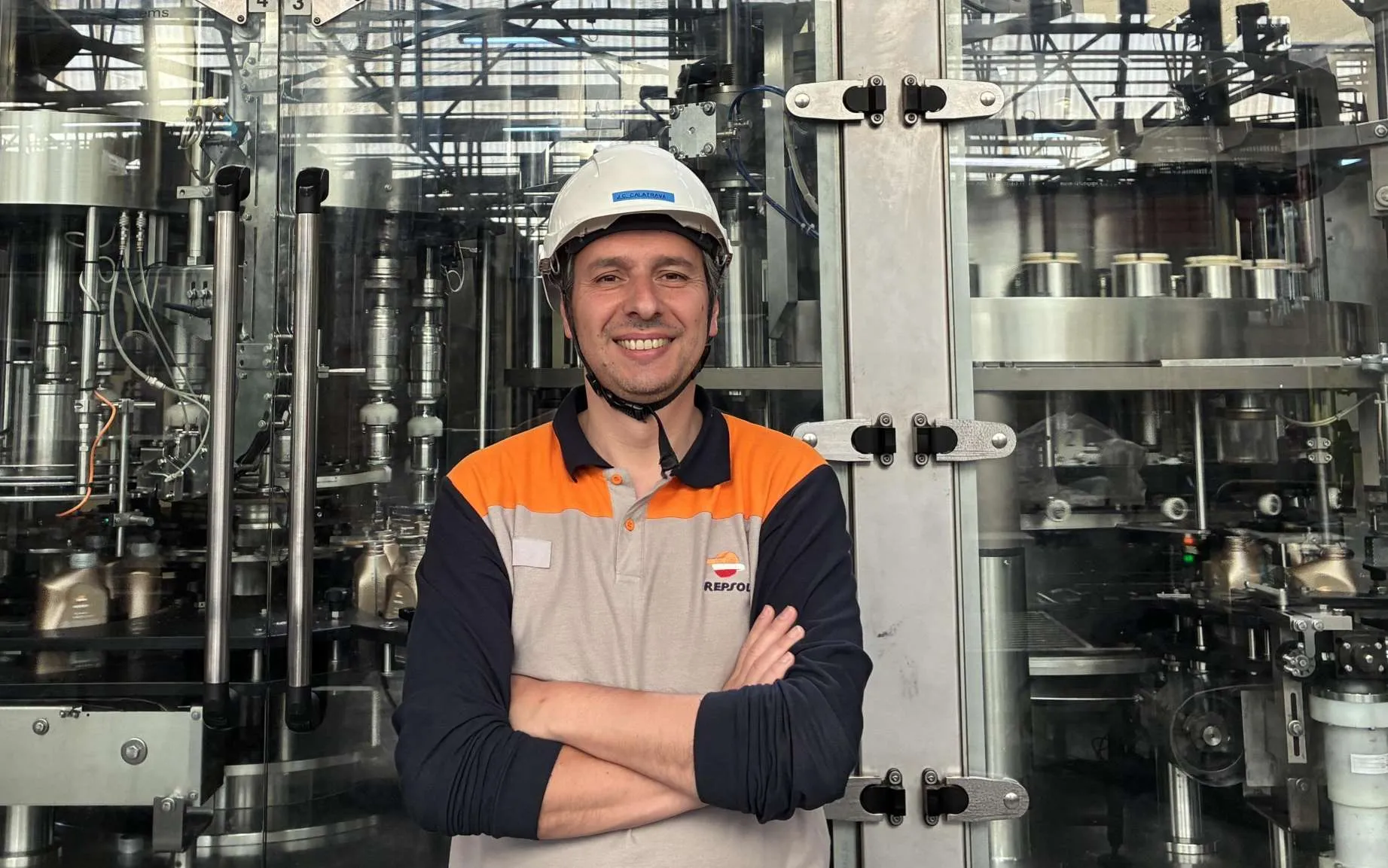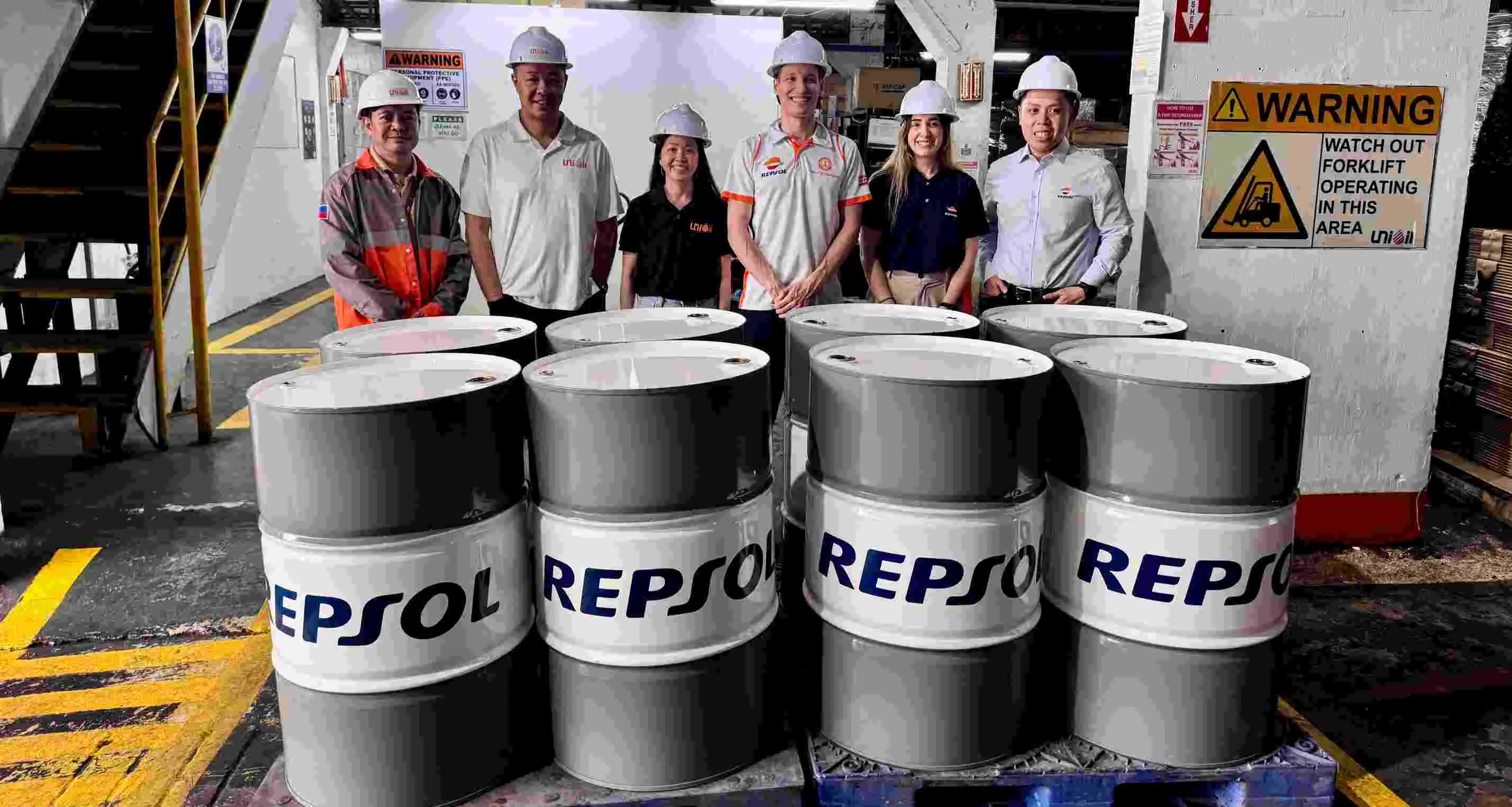Repsol Lubricants, committed to decarbonization

On the way to decarbonization
Decarbonizing the energy sector has become a need for both Repsol and the wider world we live in. That's why we’ve committed to becoming a net zero emissions company by 2050. It’s a promise that applies to all Repsol businesses and it’s already yielding results.
Lubricants and sustainability
Our lubricating oils business works every day to fulfill Repsol’s global commitment to becoming a more sustainable company. That's why we are already taking action to get us closer to meeting that objective:
- Our Master line, carbon neutral: this new line is comprised of 11 high-performance products both for light vehicles and for hybrids. Thanks to their additives and low viscosity, they enable greater fuel economy.
- A new life for used oils: as part of Repsol's circular economy plan, we are transporting used oils into new products with the same quality and properties as traditional oils. This expands our portfolio with products that reduce the environmental footprint and reinforce our commitment to the planet.
- Used oil treatment: we became the chair of SIGASUS (Comprehensive Used Oil Management System), the organization responsible for collecting and treating used oil from both industrial and vehicle use.
- Bottle recycling: we are actively participating in the Ecoembes Comprehensive Management System (SIG), which does selective pick-up and recovery of packaging waste for subsequent treatment, recycling, or enhancement. We give new life to the bottles we use to store our lubricants and make increasingly more sustainable bottles, reducing the amount of waste they generate and facilitating later recycling.
On the way to decarbonization
Decarbonizing the fuels made up until now has become a need for both Repsol and the wider world we live in. That's why, in response to the need to progress toward a business model compatible with the Paris Agreement to reach net zero emissions by 2050, we developed a Carbon Intensity Indicator (CII), which quantifies the CO2 emissions for each unit of energy we put out to serve society.
This indicator allows us to also set reduction targets, aid strategy and investment decision-making, and monitor our progress.
Slow and steady
“Updating our objectives shows the solid advances the company is making to becoming carbon neutral by 2050. Ambition, technology, and project execution are allowing us to increase how quickly we will achieve this goal.”
Josu Jon Imaz – Repsol CEO
Taking actions with a real impact
In addition to hitting net zero emissions by 2050, Repsol has set increasingly ambitious objectives as set out in its roadmap to accelerate the energy transition. They include:
- Reducing scope 1, 2, and 3 emissions 30% by 2030 vs 2016.
- Reducing scope 1 and 2 emissions 55% by 2025 vs 2016.
- 20 GW of renewable hydrogen generation capacity by 2030 and 6 GW by 2025.
- 2 million tons of advanced biofuel production capacity by 2030 and 1.3 million tons in 2025.
- 1.9 GW of net renewable hydrogen capacity by 2030 and 0.55 GW by 2025.
- Reducing the carbon intensity operated by E&P by 75% in tons of CO2/kboe by 2025 vs. 2016.
- Reducing CO2 and GHG emissions for the 2021-2025 period by 1.5 million tons.
- Reducing routine flaring by 50% on operated assets by 2025 vs 2018 and minimization at 2030.
- Reducing methane emissions by 85% by 2025 vs. 2017, reaching 0.2% on operated assets.
Industrial transformation to advance toward decarbonization
Thanks to the transformation process that began in our refining areas, we will be converting our refineries into multienergy hubs able to treat alternative raw materials to produce fuels and low carbon footprint materials in the short term. The renewable hydrogen and CO2 captured at the refineries themselves will serve to produce synthetic fuels. Both low-carbon-footprint products will be essential to the transportation of the future.
Technology will make it possible, for instance, to use urban, farming, forest, or agro-food industry waste to produce advanced biofuels and continue building the world in which we’d like to live.
Related contents



